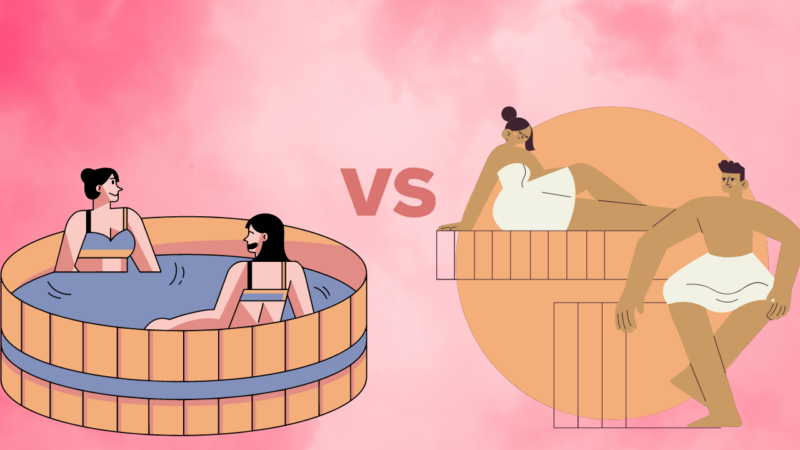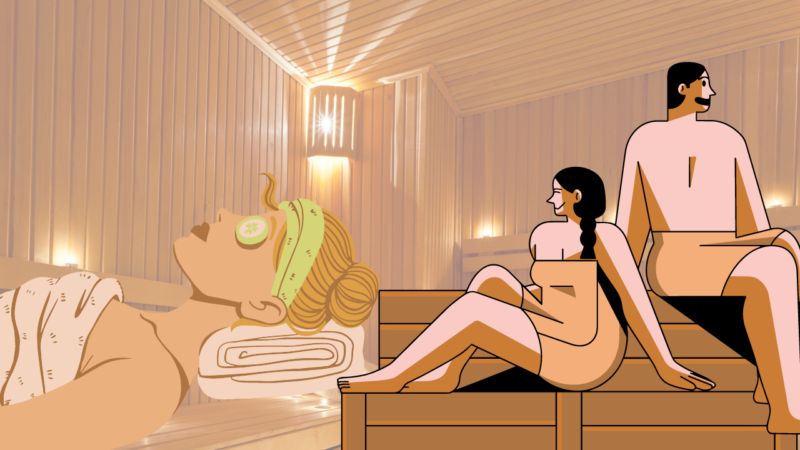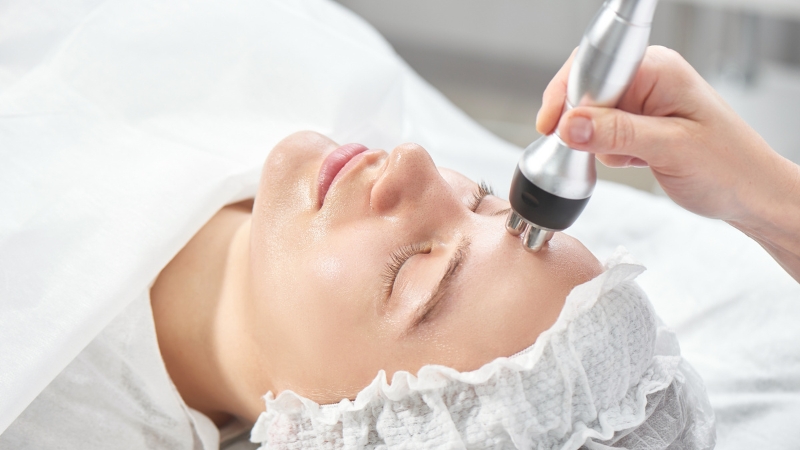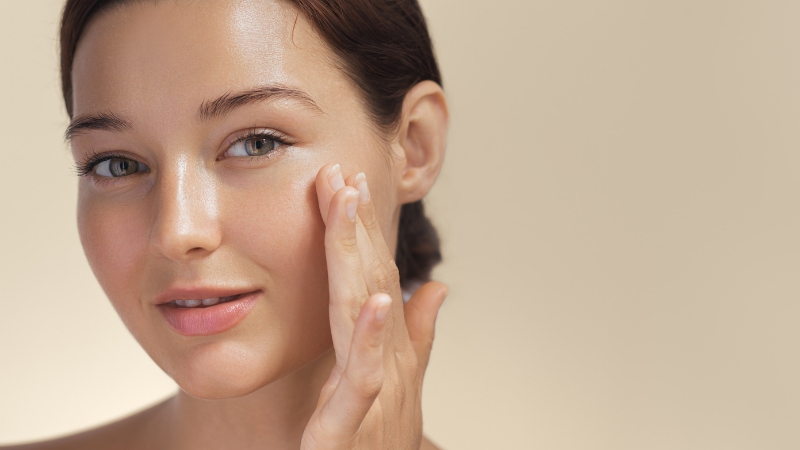
Share Post:
You know that moment when you’re standing in front of a hot tub and a sauna, trying to decide which one to go for? It’s like choosing between pizza and tacos—both are amazing, but they offer totally different vibes.
One is all about soaking and bubbling away your stress, while the other is a sweaty, steamy escape that makes you feel like you’re detoxing every bad decision from the past week.
So, which one should you decide? If you’re anything like me, you’ve probably thought about it more than once, and you just want someone to give you a straight answer. Well, you’re in the right place! Ready to compare the bubbles and the heat? Let’s get into it!
Comparing the Key Differences
| Feature | Hot Tub | Sauna |
| Heat Source | Heated water (100-104°F) | Hot air (150-195°F) |
| Primary Benefit | Muscle relaxation, joint relief | Detoxification, improved circulation |
| Duration | 15-30 minutes | 10-20 minutes |
| Setting | Indoors or outdoors | Indoors (sometimes outdoor options) |
| Sweating | Minimal | Heavy sweating |
| Water Use | Full body immersion | No water immersion |
Benefits of Hot Tubs
The magic of hot tubs lies in the combination of heat and water. If you’re a fan of baths, you probably already get it.
1. Eases Muscle Tension and Soreness
After a long day or an intense workout, sinking into a hot tub can feel like pure bliss. The warm water increases blood circulation, which helps relax muscles and ease stiffness. If you’ve got sore legs, a bad back, or just general body aches, a hot tub can help take the edge off.
2. Stress Relief and Mental Relaxation
There’s something about warm water that instantly calms the mind. Whether it’s the quiet bubbling of the jets or the enveloping heat, you can feel your stress just float away. A hot tub can help lower cortisol levels (the stress hormone), making you feel more relaxed and balanced.
3. Joint Pain Relief
For those who deal with arthritis or joint pain, hot tubs can offer some relief. The heat relaxes the muscles around your joints, which reduces stiffness and improves mobility. Plus, the buoyancy of the water takes pressure off your joints, making movement easier and less painful.
4. Better Sleep
If you struggle to fall asleep, soaking in a hot tub before bed might help. The heat not only relaxes your muscles but also raises your body temperature. When you get out, your body cools down, signaling to your brain that it’s time to rest.
Benefits of Saunas
Saunas take a different approach to healing—using air and dry heat instead of water. And for many, the benefits of sweating are where it’s at.
1. Detoxification
One of the biggest perks of using a sauna is the heavy sweating it induces. Sweating helps flush out toxins from your body. While your kidneys and liver do most of the detox work, sweating can aid in expelling certain impurities from your skin.
2. Improves Circulation
The intense heat of a sauna causes your heart rate to increase, much like it does when you’re exercising. Blood vessels dilate, which increases blood flow throughout your body. Over time, this can improve circulation, lower blood pressure, and even improve cardiovascular health.
3. Boosts Immune Function
Regular sauna use might help improve your immune system. The increased body temperature mimics a mild fever, triggering an immune response that can make you more resistant to colds and other common illnesses. It’s a natural boost that doesn’t require any pills or supplements.
4. Mental Clarity and Relaxation
Much like a hot tub, the heat in a sauna can help melt away stress. But in a sauna, you’re often surrounded by quiet, still air, which can create a meditative environment. It’s almost like your mind clears out as your body sweats. After 10-15 minutes, many people feel a sense of mental clarity and relaxation that can last for hours.
How to Choose
Everyone has different reasons for wanting to relax or heal their body. The choice between a hot tub and a sauna will depend on what you’re looking for. So, what’s important to you?
If You’re Looking for Deep Muscle Relaxation
Go for the hot tub. The combination of heat and water will help you unwind after a long day. Plus, the jets can offer targeted relief to areas like your lower back, shoulders, or legs.
If Detoxing and Sweating Are Your Thing
Sauna is your friend. The intense heat will get you sweating in no time, helping your body release toxins and giving your skin a deep cleanse.
If You Need Joint Pain Relief
Both can be great for joint pain, but hot tubs tend to be more effective. The water takes pressure off your joints, while the heat relaxes surrounding muscles.
If You Want to Improve Circulation
While both options can increase blood flow, saunas have the upper hand. The higher temperatures and dry heat make your heart work a bit harder, which can improve cardiovascular health over time.
Absolutely! Many people find that using both a hot tub and a sauna on a rotating basis offers the best of both worlds. Start with a sauna to sweat out toxins, and then follow up with a relaxing soak in a hot tub to soothe muscles. You can even alternate between the two on different days, depending on what your body needs at the time.
Important Considerations
Before you jump into either option, there are a few things to keep in mind to ensure you’re staying safe and getting the most out of your experience.
Hydration is Key
Whether you’re soaking in hot water or sitting in a dry sauna, your body loses fluids. Make sure to drink plenty of water before and after your session. If you’re sweating heavily, consider adding some electrolytes to your water to help with rehydration.
Follow the Time Limits
Both hot tubs and saunas can be hard on the body if you overdo it. Limit your time to 10-20 minutes in a sauna, and 15-30 minutes in a hot tub. If you feel lightheaded, dizzy, or overheated, it’s time to get out and cool down.
Consider Your Pre-existing Conditions
If you have heart problems, high blood pressure, or any other medical condition, consult your doctor before using a sauna or hot tub. Both can put extra strain on your body, so it’s always a good idea to get the green light from a healthcare professional.
Wrapping Up
In the end, it really comes down to personal preference and what your body needs most. If you’re all about deep muscle relaxation and stress relief, a hot tub might be your perfect match. But if you’re looking for detoxification, mental clarity, and a circulation boost, a sauna could be the way to go.
Of course, you don’t have to pick one forever—why not enjoy both? Many people find that alternating between the two gives them the ultimate combination of relaxation and health benefits. Whatever you choose, the most important thing is that you take the time to care for your body and mind.
Related Posts:
- Electric vs Natural Gas Hot Tub - Which is Better?
- How Much Does a Hot Tub Weigh and Can You Move It By…
- Electric vs. Natural Gas Hot Tubs - Which Offers…
- What’s the Perfect Temperature for Your Hot Tub?
- How Heavy Is a Hot Tub and Is It Safe to Move Alone?
- Toner vs. Essence vs. Serum – Which Belongs in Your Routine?














